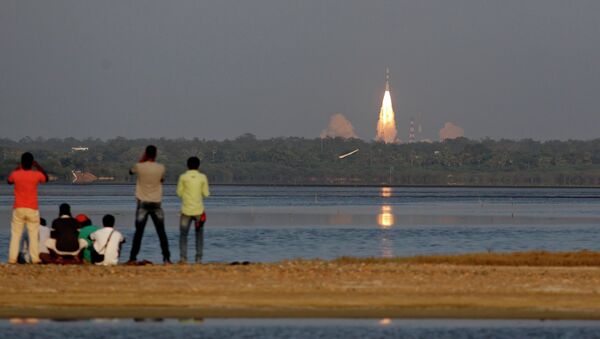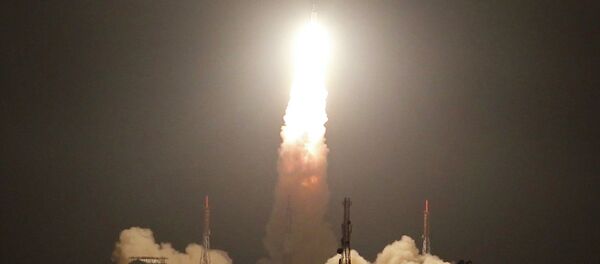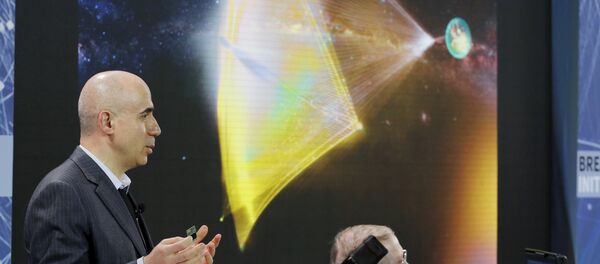#ExpressResearch From Aryabhata to RLV-TD: A history of India’s space journeyshttps://t.co/0kk6jYn9re pic.twitter.com/WLp48HXRqG
— The Indian Express (@IndianExpress) May 23, 2016
An RLV-TD, for Reusable Launch Vehicle — Technology Demonstrator, a shuttle the size of a minibus, was successfully launched at 7:00 AM local time on Monday.
During the 10-minute flight the shuttle reached an altitude of 43 miles, after which it descended, entering the atmosphere at hypersonic speed, until slowing down and eventually splashing into the Bay of Bengal.
CONGRATULATIONS @isro!
— Doordarshan National (@DDNational) May 23, 2016
India's 1st indigenous space shuttle #RLV-TD launched frm #Sriharikota
Pics:@NASASpaceflight pic.twitter.com/vm8jJOCodV
Madhavan Chandradathan, a former director of the Vikram Sarabhai Space Centre, dubbed the mission a success, adding that “RLV-TD is healthy and floating on the sea."
"Everything went according to the predictions,” he told The Hindu, adding that the reentered rocket will be left in the sea.
According to ISRO, the launch was an important step toward the development of a cheap, reliable, and, most of all, reusable Two Stage To Orbit (TSTO) launch vehicle. It is expected to be used to put satellites into orbit.
India launches first-ever indigenous space shuttle RLV-TD @isro https://t.co/lj2bF0lwZz pic.twitter.com/4NMw0BVW3C
— NDTV (@ndtv) May 23, 2016
SpaceX, a company founded by billionaire Elon Musk, has successfully landed its reusable rocket Falcon 9 on a drone ship. Unlike the Indian version, however, the Falcon 9 costs over $60 million.
India seeks to make space exploration affordable. In 2013, an unmanned Indian rocket was hurled to Mars, arriving in late September 2014. That mission cost $73 million, compared to NASA’s Maven Mars price tag of $671 million.





